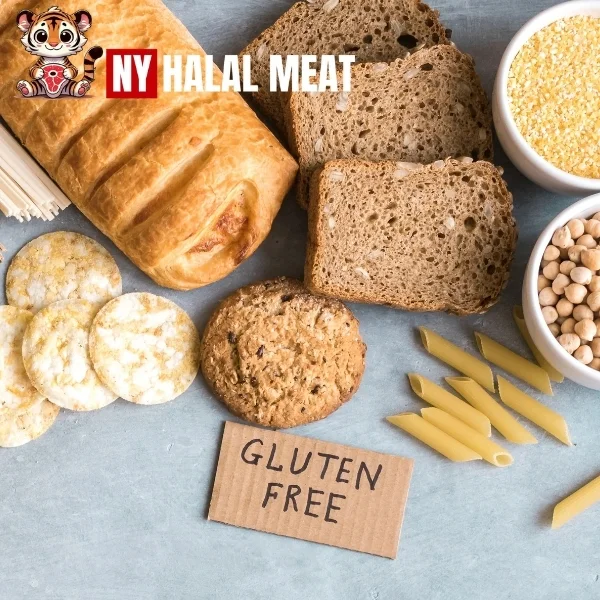Do Halal Foods Contain Gluten? Exploring the Links
What Does it Mean When Someone Says a Certain Food is Halal?
Halal foods include items that Islamic law permits for consumption. This involves following specific guidelines for ingredients and preparation methods. Key features include:
- Exclusion of pork and alcohol-based additives.
- Meat sourced from animals slaughtered according to Islamic practices.
- Strict avoidance of cross-contamination with non-halal items.
What Do Gluten-Free Foods Entail? Why Are They Consumed?
Gluten-free foods are essential for individuals with celiac disease, gluten sensitivity, or those opting for gluten-free diets. Gluten is a protein found in wheat, barley, rye, and related grains. Key aspects include:
- Avoidance of gluten-containing grains and derivatives.
- Strict labeling to ensure gluten levels are below 20 ppm.
Are All Halal Foods Gluten-Free Inherently?
Halal food is not inherently gluten-free. While halal aligns with religious dietary laws, gluten-free caters to health needs. However, some halal foods are naturally gluten-free, such as:
- Fresh fruits, vegetables, and legumes.
- Unprocessed halal-certified meats, poultry, and fish.
- Gluten-free grains like rice, quinoa, and millet.
However, processed halal foods may contain gluten unless specifically labeled as gluten-free.
Identifying Halal and Gluten-Free Food Items
- Read Labels: Look for certifications like “halal-certified” and “gluten-free.”
- Inspect Ingredients: Avoid gluten-containing items such as wheat, barley, rye, and malt extract.
- Use Trusted Brands: Opt for brands like Saffron Road or Tayyib Foods.
- Utilize Tools: Use apps like HalalCheck or gluten-free product scanners for convenience.
Examples of Halal and Gluten-Free Foods
- Fresh Produce: Fruits, vegetables, and legumes.
- Halal-Certified Proteins: Chicken, beef, and fish.
- Dairy: Milk, cheese, and yogurt.
- Grains: Rice, quinoa, millet, and buckwheat.
- Homemade Meals: Gluten-free lentils, rice, and halal-certified meats.
Managing Halal and Gluten-Free Diets

To combine these diets successfully, consider the following tips:
- Cook at Home: Use naturally gluten-free and halal-certified ingredients.
- Explore Specialty Stores: Look for products labeled as both halal and gluten-free.
- Communicate When Dining Out: Inform restaurants about your dietary needs.
- Experiment with Alternatives: Use almond or coconut flour as substitutes for wheat flour.



[…] to Ensure Your Gluten-Free Halal Meat is […]